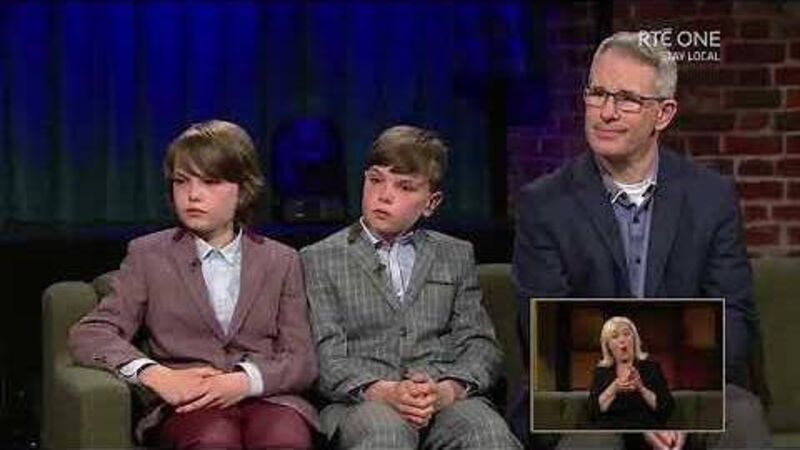High Court settlement ends decade-long battle for family of Calum Geary

Calum Geary with his twin brother Donnacha and dad Andrew on the 'Late Late Show' in 2021. The Cork family first began campaigning when Calum entered primary school.
The family of profoundly deaf boy Calum Geary has settled their High Court battle and revealed the toll a decade-long fight for his education has had on them.
Andrew Geary and his wife Helen, who campaigned for an in-classroom Irish Sign Language teacher and interpreter for their son, say the family has been "scarred deeply" and at times felt that the State was trying to pull them apart. Mr Geary said:













